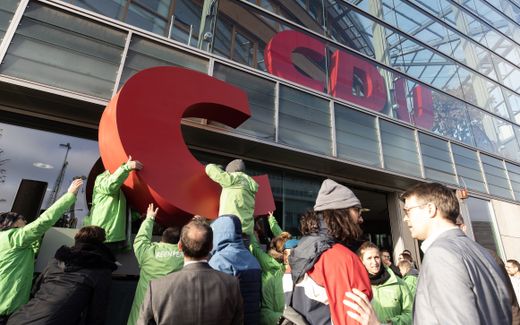In secular Sweden, Christian schools are not just educating pupils – they are standing on the frontlines of a cultural and ideological battle.

Christian parties promote public policy shaped by Biblical values. The usual focus areas are marriage, family and the protection of life.
Photo EPA, Hayoung Jeon
[Look below for more information.]
Featured
All articles with this tag
What defines a Christian party?
Christian parties try to promote a public policy shaped by Biblical values. They differ in size, ideals and history. Usually, these parties are rooted in very specific campaigns for certain topics.
Traditionally, most parties in Europe were Christian parties simply because the Christian ethos was so general in society that the establishment intuitively supported that. At the moment the general mood changed direction, Christians became active.
In The Netherlands, this happened in the 1880s. The state legislated for "neutral education" in the public schools. Christians demanded Christian schools on the same financial basis. The so-called "school struggle" dominated the political debates from 1888 until 1917. In the end, the financial equality of public and private schools was enshrined in the Constitution (in the famous Article 23). But at that moment, the protest movement had grown into the Anti-Revolutionary Party (ARP), which could exist without this specific battle. The ARP has become a strong influence for parties in other countries, too.
Several Christian parties in Scandinavia are rooted in the battle against abortion in the 1970s.
Are all Christian parties the same?
It is possible to separate between roughly two sorts of parties. The first group consists of the Christian Democratic parties. These parties usually work with the "Christian view of man". This means that anybody (believer or non-believer) can support such a movement. The German CDU/CSU works with such a formulation. The Christian Democratic parties are known as centrist parties, which are able to make coalitions with left-wing and right-wing partners.
Since the Christian Democratic vision does not require a religious belief, it is not always possible to distinguish these groups from "secular" centrist parties or Conservative movements. For some, this is a strength; for others a weakness.
The second group are the outspoken Christian parties. Most of the supporters are believers and members of confessing churches. Many times, these parties are not represented in parliament but are only active on a local level. That is the case with the British Christian Party and the Christian People's Alliance, the German "Bündnis C – Christen für Deutschland", and the Dutch ChristianUnie and the SGP Party (Staatkundig Gereformeerde Party). These parties usually focus on (traditional) marriage and family and protection of life (pro-life). All of them reject abortion and euthanasia.
In some cases, it is not clear whether the party belongs to the first or second group. It is also possible that parties change from the one to the other category.
Do Christian parties exist on the European level as well?
One of the major groups in the European Parliament is the European People's Party (EPP). This group consists mainly of Christian Democratic parties from the member states. The diversity of parties that belong to this group is enormous.
In the European Parliament, there is also the European Christian Political Movement (ECPM), an EU-wide group of which national parties can be a member. The ECPM attracts more representatives who are for an outspoken Christian policy. The number of MEPs which are connected to the ECPM is usually a handful.









